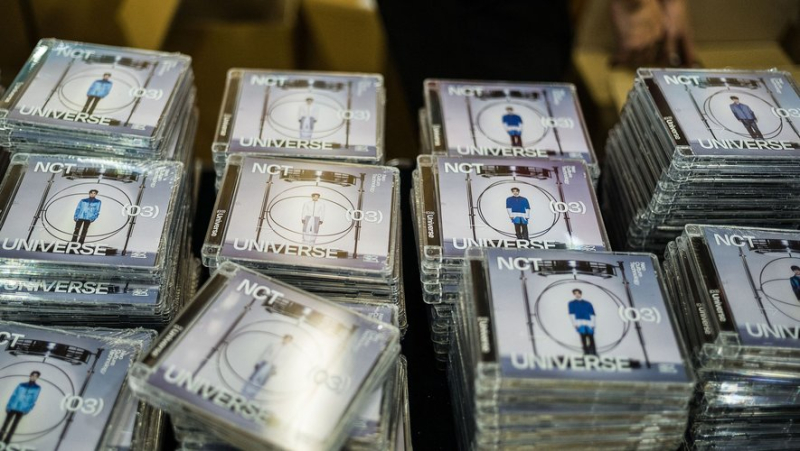Plastic, aluminum, gold… the K-pop industry is asked to make its ecological transition in South Korea

Around a hundred million albums are sold each year, in response to the K-pop frenzy. ANTHONY WALLACE/AFP
The music industry is increasingly aware of the need to reduce its environmental footprint, which is pushing it to engage in an ecological transition process. But in South Korea, the government believes that K-pop actors are not doing enough.
South Korean pop is not very eco-friendly. This is mainly due to the many records that fans of this musical genre buy to support their idols. Some 100 million albums are sold each year, in response to the K-pop frenzy, according to the Korea Times.
However, CDs are made of 90% polycarbonate, a type of transparent plastic that is very resistant to scratches. They also contain aluminum as well as traces of silver, gold and nickel, which makes them very difficult to recycle. And that’s without counting the boxes in which they are sold, which contribute to increasing their carbon footprint. The Korea Times estimates that South Korea's fifteen major production companies sold more than 390 tons of plastic packaging in 2022.
This figure is far too high compared to the climate and ecological commitments that South Korea has made in recent years. In 2020, the Asian country committed to reducing its greenhouse gas emissions to achieve carbon neutrality by 2050, like its neighbors China and Japan. The South Korean government strongly encourages all sectors to become more involved in climate preservation, including music.
The strike force of K-pop fans
This is why the Korean Ministry of the Environment will soon launch a campaign to denounce the disproportionate use of plastic packaging in the music industry. In particular, it will organize, with the help of the Ministry of Culture, Sports and Tourism, consultative meetings with members of the Recording Industry Association of Korea (RLIAK) to attract their attention to the astronomical quantity of CDs and other plastic waste that they produce.
An initiative full of good intentions but which risks turning out to be quite ineffective. South Korea currently has no official regulations regarding the production of plastics in the music industry, according to the Korea Times. Nothing therefore obliges players in the sector to review their copy.
But it's possible that K-pop fans will force them to do so. Indeed, Korean music lovers are not insensitive to climate change. Some of them even organized to create Kpop4Planet, an activist association that fights for climate protection. Members of this NGO encourage Korean pop fans to make donations and sign petitions to push decision-makers to take the necessary measures to address the scale of the environmental crisis. Given the degree of influence of K-pop fans on social networks, perhaps they will manage, with time and especially a lot of tweets, to make the Korean music industry greener.




